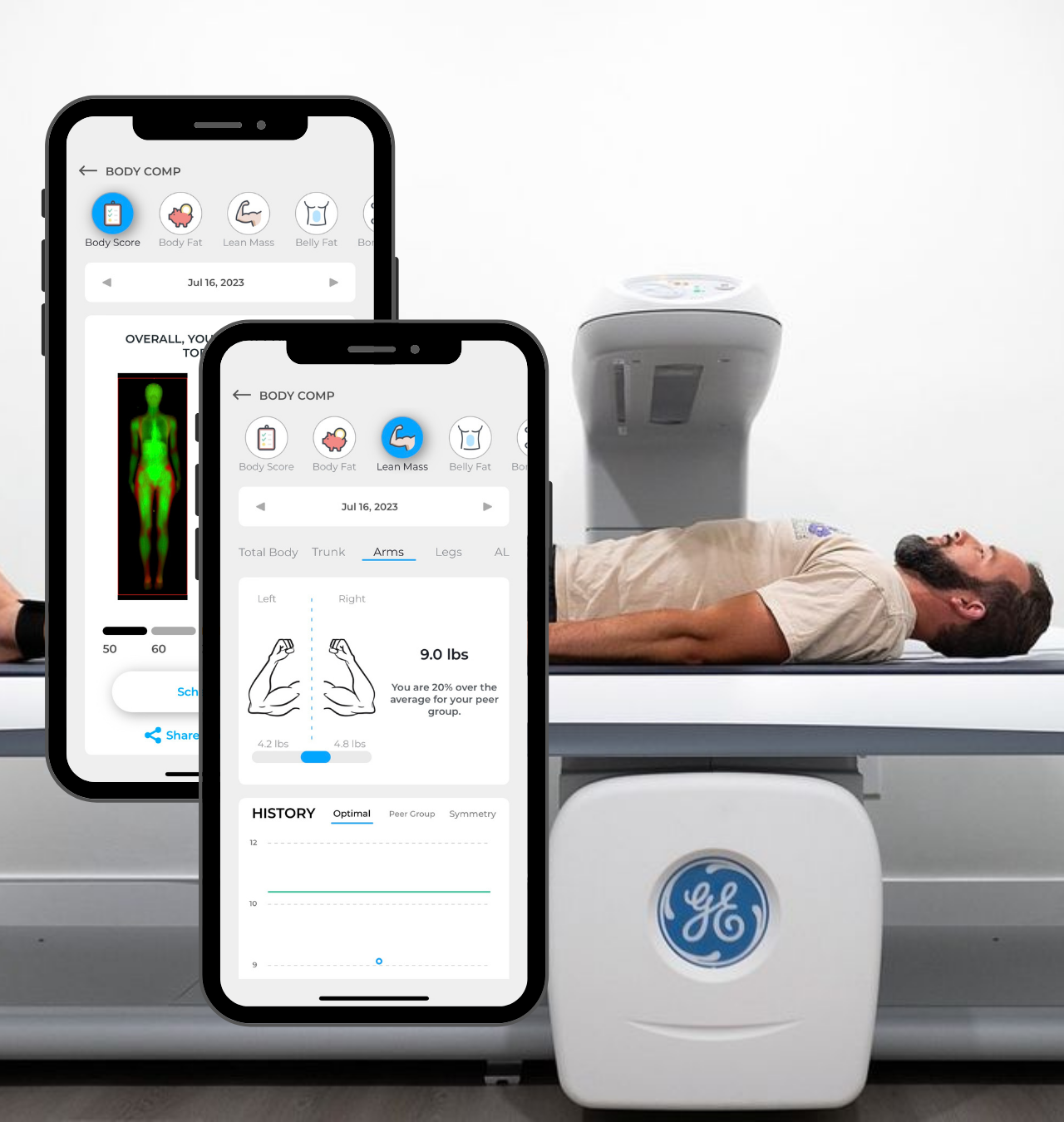In 2025, DexaFit tracked real follow-up data across a global network to see what actually changes when people stop guessing and start measuring. The results reveal clear trends in body fat, visceral fat, lean mass, bone density, and VO₂ max—and what’s truly possible when progress is measured, not assumed.
Dr. Peter Attia’s recent 60 Minutes feature brought longevity medicine into the spotlight, highlighting tools like DEXA scans and VO₂ Max testing as essential for building strength, healthspan, and resilience. For more than a decade, DexaFit has helped people access these same data-driven tests to understand their bodies and train for a longer, healthier life.
Mitochondria—your body’s cellular engines—power every heartbeat, thought, and movement. With age, their number and efficiency decline, while defects (heteroplasmy) rise. This mitochondrial fade drains energy, slows recovery, and raises disease risk. Training and VO₂ Max tracking can preserve and rebuild them.
VO₂ Max above 90 ml/kg/min is extremely rare, seen in athletes like Bjørn Dæhlie (96) and Oskar Svendsen (97.5). Genetics, massive stroke volume, dense capillaries, and years of intense aerobic training converge. High VO₂ Max matters, but efficiency and fractional utilization (Redline Ratio) define sustained performance.
Metabolic water is made inside your mitochondria every time oxygen meets hydrogen at the end of the electron transport chain. This pure, deuterium-depleted water hydrates cells from within, fuels enzymes and repair, and scales with VO₂ Max. Training your aerobic system means training your body’s own water supply.
VO₂ Max sets your aerobic ceiling, but performance depends on more than oxygen uptake. Endurance outcomes are determined by three levers: ceiling (VO₂ Max), usable fraction (threshold/Redline Ratio), and cost (economy/efficiency). Together, they dictate how much speed or power you can actually sustain.





